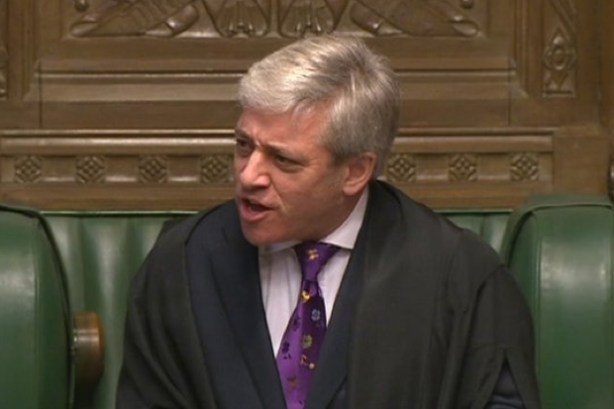When she was moved to the Leader of the House position, it appeared as though Andrea Leadsom was being given a low-profile job because she wasn’t performing well in the Cabinet. Whether or not that was the case, Leadsom has actually turned out to be exactly the right person for this role. She proved that again today in the House of Commons when answering an urgent question from Caroline Lucas about bullying of House staff.
This urgent question was rather odd in itself: it was in response in part to allegations made against Speaker Bercow, who both granted the UQ and then chaired it. Perhaps this was an attempt to show he believes in scrutiny even of himself, or perhaps Bercow hoped that by being present, he might have an effect on the mood in the Chamber. As it was, the atmosphere in the Chamber was a serious one, and there was no real movement against Bercow as had been predicted in some quarters. James Duddridge provoked shouts of ‘shame!’ when he tried to attack the Speaker. This was also odd, because Duddridge had to address his criticism of Bercow through the minister, where usually an MP addresses criticism of a minister through the Speaker.
But the focus of this session was on whether Parliament is sufficiently well-equipped to deal with allegations of bullying from its own staff. Leadsom maintained this serious tone by refusing to be drawn on the number of allegations made, or any further details. Instead, she focused on the structures that are being set up to ensure that harassment and bullying allegations are no longer ignored. Leadsom announced that the working group that set up the new independent complaints procedure following the sexual harassment allegations would now consider whether House staff should also have access to this procedure. Currently staff are covered by the separate Respect policy, but the Leader of the House said there was a clear possibility that this policy was not working.
She also didn’t grandstand, repeatedly insisting that it was important that there was a robust complaints process so that complainants and alleged perpetrators felt as though they were being heard. A tempting and very common response to the row about sexual harassment and bullying is to suggest that all allegations are entirely accurate and that punishment in the kangaroo court of social media is valid. In reality, most victims don’t want to speak out in public and will only turn to the press when they feel no-one has even listened to their complaint. If proper process is not followed, then not only might it unfairly ruin someone’s reputation when they are in fact innocent, it may also mean the victim doesn’t get justice as an alleged perpetrator can raise reasonable objections to a poorly-executed process.
This is why MPs were wise not to turn this urgent question into an attack on John Bercow. All those involved in the complaints made against him will not be well-served by a campaign to oust the Speaker, and therefore to mount one would be incredibly selfish.







Comments